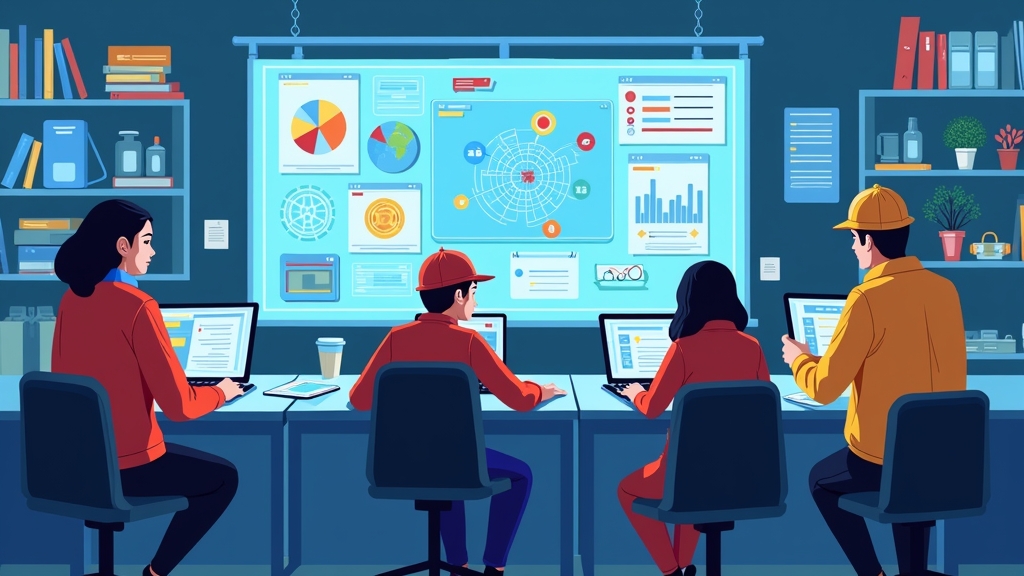Advertising
In recent years, the demand for Online Courses The number of free courses has grown exponentially. Whether it's to improve skills, acquire new knowledge or even make a career transition, free courses offer a variety of benefits without the financial burden. This article explores strategies for finding these courses, discusses their advantages and guides readers on how to access tuition-free platforms, as well as offering specific guidance on courses at institutions such as ETEC, SENAC and SENAI.
Effective Strategies for Finding Free Courses
Meet Online Courses quality free access requires some specific strategies. A good approach is to start with a detailed search on the websites of renowned universities and educational institutions, which often offer free access as part of their educational outreach initiatives. Platforms such as Coursera and edX, for example, collaborate with prestigious universities to offer a wide range of courses free of charge.
In addition, many public libraries and community centers offer access to Online Courses through partnerships with educational platforms. Checking out these local resources can reveal opportunities not only for learning, but also for networking with other learners. It's also wise to keep an eye on social networks and educational blogs, as they often advertise free course offers or periods of free access to learning materials.
Finally, signing up for education newsletters can be an effective way of receiving updates on new free courses. Often, these newsletters include inside information about course launches or special learning initiatives, allowing those interested to sign up before places run out.
Complete Guide: Access to Online Courses Free of Charge
For those looking for Online Courses It is crucial to understand the course formats available. Some courses are completely free, with unrestricted access to all materials and no additional costs. Others, however, may offer free access to lessons but require payment for certification or access to complementary materials.
It's important to check the opinions and ratings of other users before signing up for free courses. These reviews can offer insights into the quality of the course, the effectiveness of the instructors and the relevance of the material to specific areas of interest. In addition, some platforms allow users to preview parts of the course before enrolling, which can help ensure that the content meets their expectations.
Advertising
Another important consideration is to check the workload and time commitments associated with the course. Some free courses are self-paced and can be completed at the student's own pace, while others may have specific deadlines or require participation in live sessions. Understanding these requirements can help students better plan their studies and ensure that they can complete the course without interruption.
Benefits of Free Courses in Continuing Education
Continuing education is vital in a job market that is always evolving, and the Online Courses Free programs play a crucial role in this process. They provide a flexible and affordable way for professionals to keep up to date with the latest trends in their fields, without the financial commitment of traditional undergraduate or postgraduate programs.
You Online Courses Free courses are also an excellent way to explore new fields of interest without financial risk. This is particularly valuable for those considering a career change or wanting to expand their skills to include interdisciplinary disciplines. Courses in areas such as programming, graphic design, digital marketing and much more are available for free, giving professionals the tools they need to advance or change their careers.
In addition, employers increasingly value continuous learning and adapting to new technologies and working methods. Therefore, showing a track record of continuing education through Online Courses can make a candidate stand out during selection or promotion processes by demonstrating commitment to self-development and the ability to take initiative.
How to Make the Most of Free Online Courses
To really get the most out of Online Courses free of charge, students should organize themselves and commit to a study plan. Setting specific goals and a clear timetable can help maintain focus and motivation. It is useful to set weekly or daily goals, and periodically review progress to adjust the study plan as necessary.
In addition to personal organization, interaction with other students can enrich the learning experience. Many Online Courses Free courses offer discussion forums or study groups where students can exchange ideas, resolve doubts and collaborate on projects. Actively participating in these communities not only helps to deepen your understanding of the course material, but can also lead to networking opportunities.
In addition, applying the knowledge acquired in practical projects is one of the best ways to consolidate learning. Whether it's starting a personal project, contributing to a community project or applying new skills at work, real practice can turn theory into practical skills and increase confidence in mastering new knowledge.
Tools and Platforms for Free Courses
There are various tools and platforms that offer Online Courses each with its own characteristics and advantages. Platforms such as Udemy, Khan Academy and Google Digital Garage offer courses in a wide range of subjects. These platforms are designed to be intuitive and accessible, making online learning a viable option for many.
Another useful tool for online learners is the use of time management apps and task organizers, which can help keep track of course deadlines and learning objectives. In addition, many courses offer supplementary materials such as videos, quizzes and additional readings, which can enrich the learning experience and offer a deeper understanding of the topics covered.
Finally, it's important to keep up to date with what's new in the online education sector. Subscribing to educational blogs, attending webinars and following educational influencers on social media can provide valuable information about new courses, educational trends and best practices in online learning.
Free Courses at ETEC, SENAC and SENAI
Institutions such as ETEC, SENAC and SENAI offer a wide range of Online Courses and free classroom courses that are highly valued in the Brazilian job market. These courses cover technical and vocational areas, providing practical training that can be directly applied in the workplace. The classes are run by experienced professionals and are a great option for those looking for quick and effective qualifications.
In addition, these courses often include internship or laboratory practice modules, which allow students to apply theoretical knowledge in real-life situations, an important differentiator in technical learning. Flexible timetables, especially for evening courses, facilitate access for those who are already in the job market and are looking to improve their skills.
For those interested in emerging or rapidly changing areas, such as industrial automation, health and services, ETEC, SENAC and SENAI frequently update their curricula to reflect the news and demands of the market, ensuring that their courses remain relevant and in line with employers' needs.
How to Apply to ETEC, SENAC and SENAI
The application process for Online Courses The process of applying to these institutions is generally straightforward, but requires attention to deadlines and specific requirements. Those interested should visit the institutions' official websites for detailed information on the courses on offer, including entry requirements, course duration and necessary documentation.
The application process often involves an aptitude test or a transcript analysis, especially for more popular or technical courses. It is advisable to prepare for these assessments in advance. In addition, keeping in touch with the admissions department can help clarify doubts and ensure that all procedures are followed correctly.
Once accepted, the student must keep an eye on the deadlines for registration and the start of classes. Active participation in the first few weeks is crucial, as many courses have a practical or laboratory component right from the start, and missing these sessions can negatively impact the entire learning process.
Best Courses to Take in 2024
Looking to the future, the best Online Courses to consider in 2024 include those focused on technology, sustainability, health and data. Demand for skills in programming, sustainable design, healthcare and data analysis is growing, reflecting changes in the global economy and concerns about environmental and health issues.
Courses offering certifications in areas such as artificial intelligence, renewable energy, telemedicine and big data will be particularly valuable. These courses not only provide technical knowledge, but also practical skills that will be highly sought after in the coming years.
Courses with the Best Careers in the Job Market
When choosing a course, it's important to consider the long-term return it can offer in terms of career opportunities. Areas such as software development, project management and data analysis not only offer excellent salary opportunities, but are also in increasing demand on the job market.
What's more, with the rise of digitalization in all areas of life, courses that teach basic to advanced digital skills will continue to be extremely relevant. Professionals who can combine technical knowledge with interdisciplinary skills tend to stand out in an increasingly competitive job market.
Conclusion
You Online Courses Free courses represent an incredible opportunity for individuals of all ages and from diverse educational backgrounds to hone their skills, explore new areas of interest and advance their careers without the financial commitment of traditional courses. As education continues to evolve and adapt to new technologies, these courses will become an increasingly important part of the educational landscape. We encourage everyone to take advantage of these valuable resources and to remain curious and engaged in their learning journeys.



